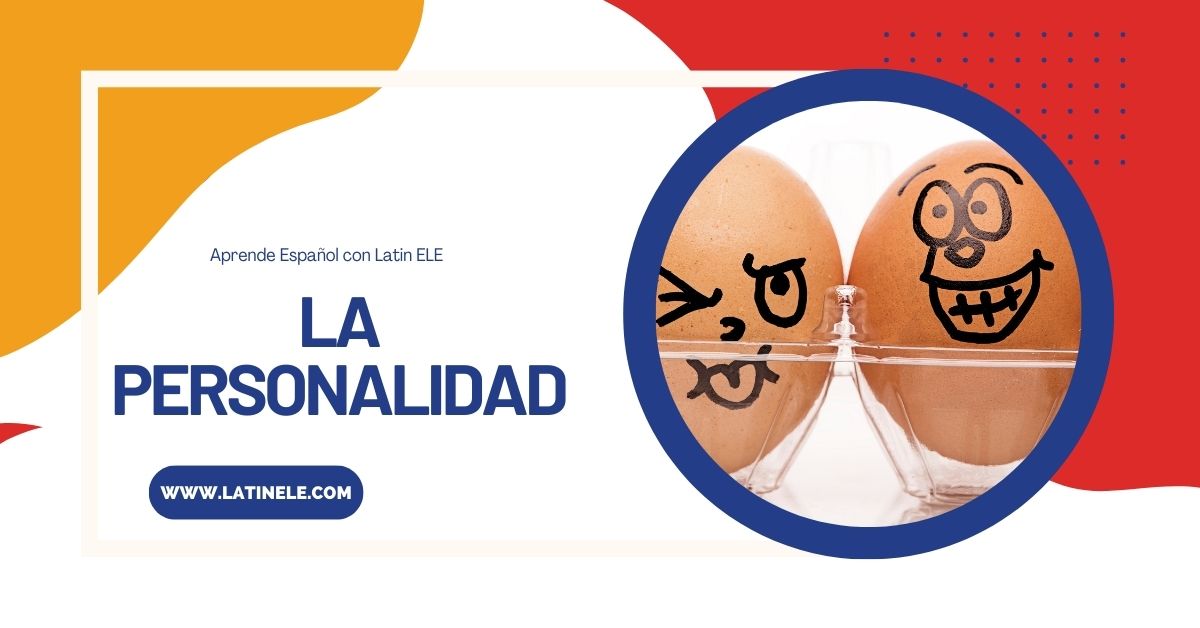It’s time to gossip in Spanish! If you want to learn to describe someone’s personality this article will provide you with an easy-to-follow explanation if you’re a Spanish beginner.
In this blog post, we’ll look at some basic grammar structures and adjectives in Spanish that will help you easily describe personality traits.
And if that wasn’t enough, we’ve even included a listening exercise with the transcript for you to practice your listening skills.
You can follow along the explanation with our podcast Speaking Spanish for Beginners on how to describe a person here.
Basic Structure to Describe People
To start with, let’s look at the basic grammar structure and vocabulary you’ll need to describe people’s personalities in Spanish. Good news is that the basic structure is similar in English and Spanish. It is: subject + verb ‘ser‘ (to be) + Spanish adjective.
Example: Juan es simpático (Juan is nice, likeable).
Subject gender and number are important to be able to describe people correctly. Most Spanish adjectives used to describe people change depending on whether you’re referring to masculine of feminine noun. For example, if we’re talking about Juan, we’d use the masculine form of the adjective, ‘simpático’, but if we’re talking about María, we’d use the feminine form, ‘simpática‘.
So remember to choose the right form when you’re speaking or writing in Spanish.
What if you’re describing a group of people? Then you need to use the Spanish adjective in the plural form by adding an -s at the end.
Example: Juan y María son simpáticos.
If you don’t know a person well and want to share your impressions of their character and personality, you use the verb ‘parecer‘ (to seem).
Example: Adam parece antipático. (Adam seems unpleasant)
And what are some personality adjectives in Spanish?
Let’s take a look at some of them. In this list of Spanish adjectives to describe people you will find positive traits followed by their antonym. That’s a good way to help you remember new Spanish vocabulary and learn new words.
Simpático/a : Nice, likeable
Antipático/a: Obnoxious
Generoso/a: Generous
Tacaño/a: Cheap
Alegre: Cheerful
Gruñon/a: Grumpy
Trabajador/a: Hardworking
Perezoso/a: Lazy
Extrovertido/a: Extrovert
Introvertido/a: Introvert
Inteligente: Smart
Bobo/a: Silly
Cortés: Polite
Descortes: Impolite
Agradable: Nice, pleasant
Desagradable: Unpleasant
It’s not an extensive list, but it’s a start. These adjectives will help you describe your friends and family and have your first Spanish conversations.

Spanish Adventures Companion
Get our FREE ebook and podcast and learn the essential vocabulary and cultural insights you need to handle common travel situations in Spanish.
Time to practice!
Ready to learn more? Now it’s time to practice Spanish personality adjectives with our podcast (listed above).
You’ll find a listening exercise (minute 9:58′). In the audio, two friends, Jessica and Marco, describe people in Spanish using some of the Spanish words in the adjective list. Ready? ¡Vamos!
Dialogue:
Marco: Jessica, ¿cómo estás?
Jessica: Bien, ¿y tú?
Marco: Muy bien, gracias. ¿Cómo está tu hermana?
Jessica: Ella está bien.
Marco: ¿Cómo es ella? No la conozco bien.
Jessica: Ella es simpática, extrovertida y alegre.
Marco: Esa es mi impresión. Jessica: ¿y tu hermano? ¿Cómo es él?
Marco: Mi hermano es un bobo. Es perezoso, antipático y descortés. Creo que es la edad, tiene 15 años.
We really hope this blog entry help you learn words for describing your friends and family in Spanish so you can get by in most situations where you need to talk about others en español.
And if you’re looking for more content to learn Spanish, there are tons of blog entries here at Latin ELE.
Happy learning!



